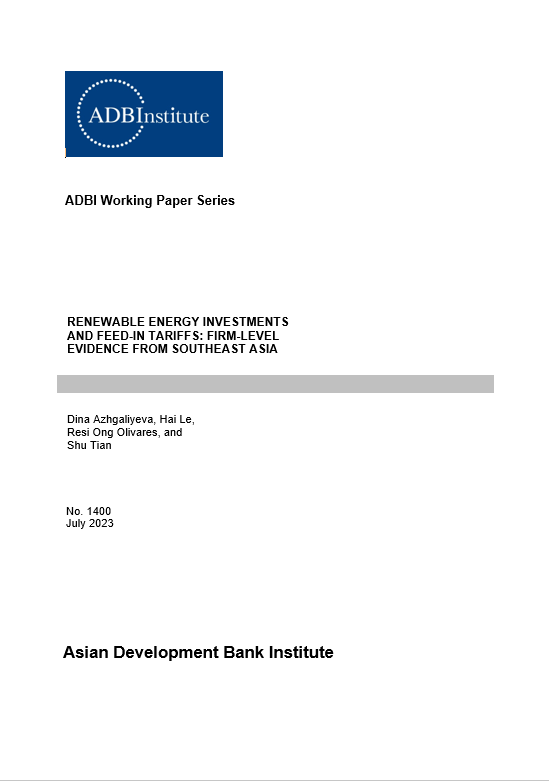
Renewable Energy Investments and Feed-in Tariffs: Firm-Level Evidence from Southeast Asia
The implementation of a feed-in tariff has a significant and positive effect on firms’ investments in renewable energy projects.

The implementation of a feed-in tariff has a significant and positive effect on firms’ investments in renewable energy projects.
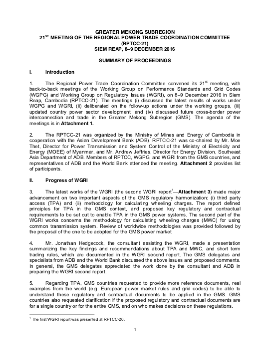
The Greater Mekong Subregion (GMS) countries convened the 29th (the final) Meeting of the GMS Regional Power Trade Coordination Committee (RPTCC-29) in a hybrid format (with inperson in Siem Reap, Cambodia and via web-based conferencing) on 5-6 July 2022. RPTCC-29 was a landmark meeting signaling the evolution of RPTCC into the GMS Energy Transition Taskforce (ETTF).
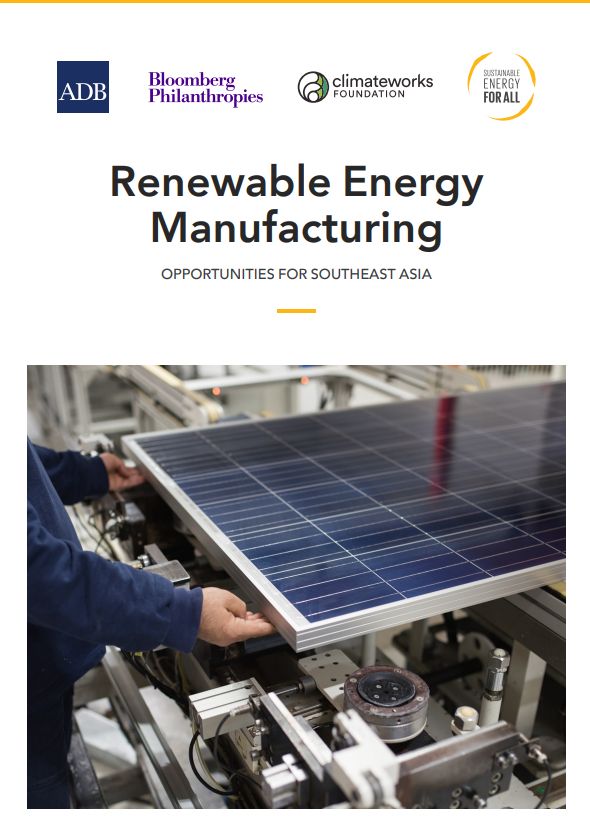
This report presents an assessment of Southeast Asia to become a leader in renewable energy manufacturing. It also identifies key opportunities for intraregional collaboration.
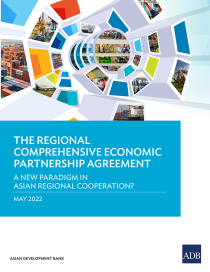
This report compares the Regional Comprehensive Economic Partnership (RCEP) with other free trade agreements and suggests how policy makers can promote its successful implementation.
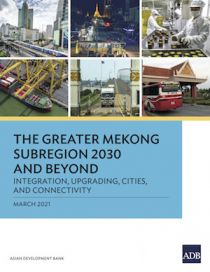
This publication provides an analysis of key challenges and opportunities for the Greater Mekong Subregion (GMS) to realize its development goals by 2030 and beyond.

This publication identifies bottlenecks to regional power trading in the Greater Mekong Subregion (GMS) and proposes solutions to overcome them.
This is the joint statement issued at the 23rd GMS Ministerial Conference held in Phnom Penh, Cambodia on 18 November 2019.
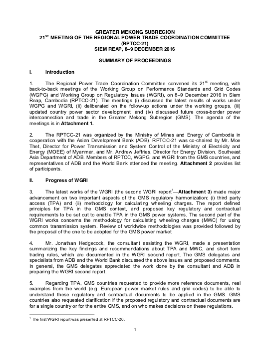
This is the summary of proceedings from the 25th Meeting of the Regional Power Trade Coordination Committee (RPTCC-25) on 20 to 22 March 2019 in Bangkok, Thailand.
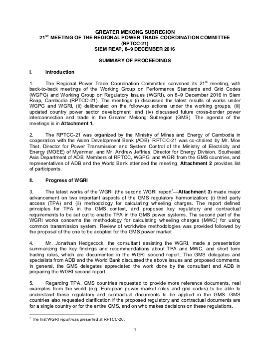
This is the summary of proceedings of the 23rd Meeting of the Regional Power Trade Coordination Committee in Vientiane, Lao People’s Democratic Republic on 13-15 December 2017.
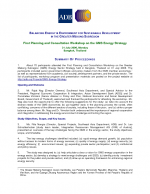
About 70 participants attended the First Planning and Consultation Workshop on the Greater Mekong Subregion (GMS) Energy Sector Strategy held in Bangkok, Thailand on 31 July 2006. The participants included senior government officials and policy makers from the GMS member economies, as well as representatives from academia, civil society, development partners, and the private sector.